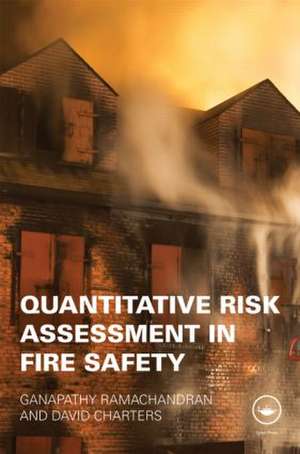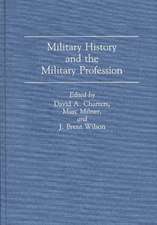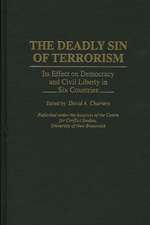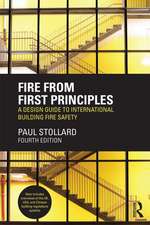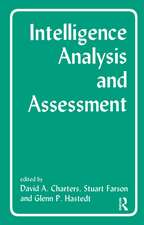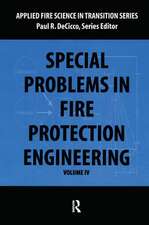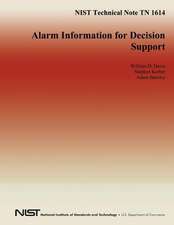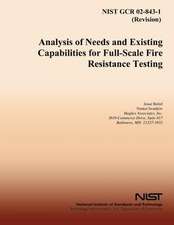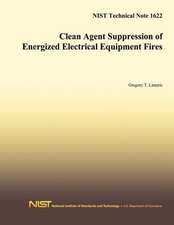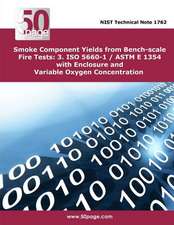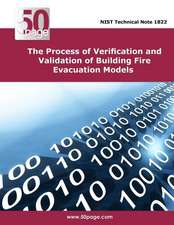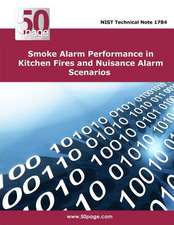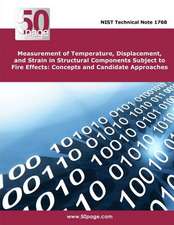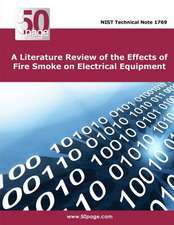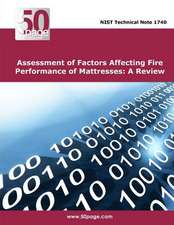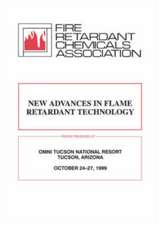Quantitative Risk Assessment in Fire Safety
Autor Ganapathy Ramachandran, David Chartersen Limba Engleză Hardback – 17 feb 2011
Although regulations only require a qualitative assessment of fire risk, a quantitative assessment is an essential first step for performing cost-benefit analysis of alternative fire strategies to comply with the regulations and selecting the most cost-effective strategy. To facilitate this assessment, various qualitative, semi-quantitative and quantitative techniques of fire risk assessment, already developed, are critically reviewed in this book and some improvements are suggested.
This book is intended to be an expanded version of Part 7: Probabilistic risk assessment, 2003, a Published Document (PD) to British Standard BS 7974: 2001 on the Application of Fire Safety Engineering Principles to the Design of Buildings. Ganapathy Ramachandran and David Charters were co-authors of PD 7974 Part 7.
Quantitative Risk Assessment in Fire Safety is essential reading for consultants, academics, fire safety engineers, fire officers, building control officers and students in fire safety engineering. It also provides useful tools for fire protection economists and risk management professionals, including those involved in fire insurance underwriting.
| Toate formatele și edițiile | Preț | Express |
|---|---|---|
| Paperback (1) | 358.38 lei 43-57 zile | |
| CRC Press – 30 iun 2020 | 358.38 lei 43-57 zile | |
| Hardback (1) | 1287.06 lei 43-57 zile | |
| CRC Press – 17 feb 2011 | 1287.06 lei 43-57 zile |
Preț: 1287.06 lei
Preț vechi: 1569.58 lei
-18% Nou
Puncte Express: 1931
Preț estimativ în valută:
246.36€ • 267.69$ • 207.07£
246.36€ • 267.69$ • 207.07£
Carte tipărită la comandă
Livrare economică 21 aprilie-05 mai
Preluare comenzi: 021 569.72.76
Specificații
ISBN-13: 9780419207900
ISBN-10: 0419207902
Pagini: 384
Ilustrații: 52 tables, 12 halftones and 48 line drawings
Dimensiuni: 156 x 234 x 22 mm
Greutate: 0.87 kg
Ediția:1
Editura: CRC Press
Colecția Routledge
ISBN-10: 0419207902
Pagini: 384
Ilustrații: 52 tables, 12 halftones and 48 line drawings
Dimensiuni: 156 x 234 x 22 mm
Greutate: 0.87 kg
Ediția:1
Editura: CRC Press
Colecția Routledge
Public țintă
Academic and Professional Practice & DevelopmentCuprins
1. Introduction 2. Qualitative and Semi-quantitative Risk Assessment Techniques 3. Quantitative Risk Assessment Techniques 4. Acceptance Criteria 5. Initiation 6. Design Fire Size 7. Fire Spread Beyond Room of Origin 8. Performance and Reliability of Detection, Alarm and Suppression 9. Performance and Reliability of Human Response and Evacuation 10. Performance and Effectiveness of Fire Service Intervention 11. Whole Project Analysis 12. Interactions 13. Combining Data from Various Sources – Bayesian Technique
Notă biografică
Ganapathy Ramachandran, PhD, DSc, FIFireE, MSFPE, held senior scientific appointments for 23 years (1965–1988) at the Fire Research Station, Borehamwood, Herts, UK. Since retiring in November 1988, he has been practising as a private consultant mainly in research problems in the application of statistical, probabilistic and economic techniques to fire risk evaluation, fire protection engineering and fire insurance. He is the author of Economics of Fire Protection (1998) and co-author of Evaluation of Fire Safety (2004). He is currently a Visiting Professor at the University of Leeds, UK. He has more than 45 years of experience in the field.
David Charters, PhD, CEng, MIMechE, FIFireE, MSFPE is Director of the Fire Engineering Analysis Group at BRE. He previously held the position of Director at Arup Fire, and has more than 23 years experience in the field. He is a past president of the Institution of Fire Engineers, and is currently a Visiting Professor in Fire Risk Analysis at the University of Ulster, UK.
David Charters, PhD, CEng, MIMechE, FIFireE, MSFPE is Director of the Fire Engineering Analysis Group at BRE. He previously held the position of Director at Arup Fire, and has more than 23 years experience in the field. He is a past president of the Institution of Fire Engineers, and is currently a Visiting Professor in Fire Risk Analysis at the University of Ulster, UK.
Descriere
This innovative guide addresses the probability of initiation, smoke movement and fire spread and the reliability of detection, human response and Fire Service intervention.
